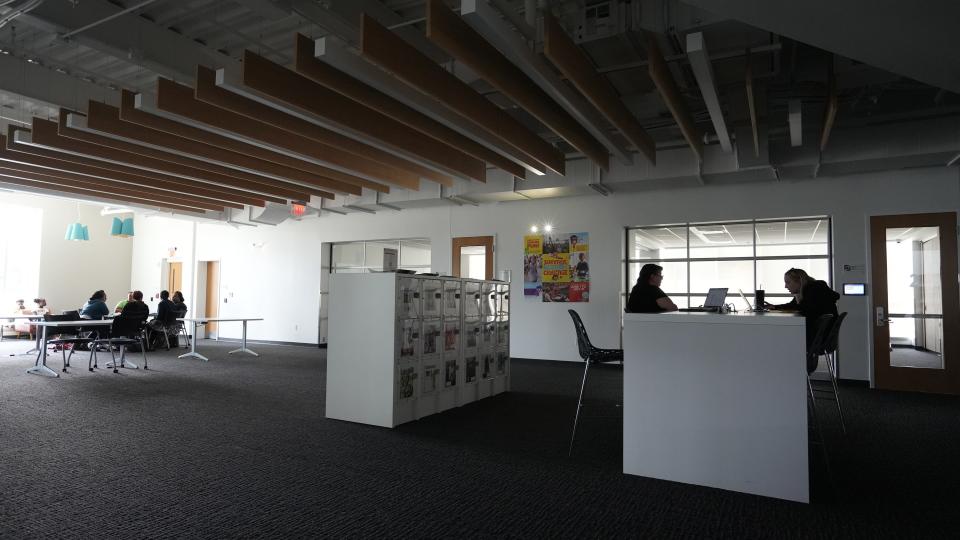AEP monopoly 'out of our control.' Community solar gives power back to customers. |Opinion
Tristan Rader is the Ohio program director for Solar United Neighbors and is a member of Lakewood City Council.

This week, we received a stark reminder of what the House Bill 6 scandal cost Ohio. More than 230,000 people lost power in Columbus as temperatures hit the triple digits. Our electric grid is putting consumers in danger.
The companies charged with maintaining it, AEP and FirstEnergy, are ignoring, or worse, blocking solutions that would protect our communities and lower our electric bills. Ohio needs to invest in better energy solutions. We also need decision makers who will hold utilities accountable.
To understand what Ohio can do to avoid future blackouts, we need to understand why this one happened. This didn’t come from a freak storm that knocked down power lines. AEP shut down the grid because it had to.
More: AEP Ohio intentionally shut off power to some Greater Columbus neighborhoods. Here's why
The high temperatures led to a spike in electricity demand. AEP was unable to distribute electricity to where demand peaked. When a utility can’t meet demand, it has to shut down the electric grid. The electric grid needs electricity to power itself. If it doesn’t have any, it does a hard shutdown. If that happens, it can take weeks to restart electric service.

More: How to submit guest opinion columns to the Columbus Dispatch
This week’s events expose one of the lies at the heart of the House Bill 6 scandal. AEP and FirstEnergy wrongly claimed that maintaining additional fossil fuel generation was necessary to keep our communities safe. It isn’t.
The companies have systematically underinvested in the grid. That’s why they are unable to keep the lights on. Instead, through bailouts like House Bill 6, they’ve sought to pad returns for their shareholders.
At the same time, they’ve fought against competing energy sources, like solar energy, that provide real protection for communities when electricity demand spikes.
More: House bill would permit community solar in Ohio, but would it reduce emissions much?

Solar benefits everyone. It provides electricity during the day when demand is highest. This helps protect the electric grid and meet peaks in demand when the temperature rises, and we all crank up the A/C. It also provides electricity close to the source of demand. This means we spend less on expensive upgrades to transmit the electricity over long distances, like we pay for with energy from large, centralized power plants.
This week should serve as a wake-up call for utilities and Ohio’s elected officials.
It’s time to diversify where Ohioans get our energy from. We can start today with what’s called community solar.
Community solar allows individuals, businesses, or organizations to purchase or subscribe to a “share” in a community solar project. Participants in a community solar project receive a credit on their electric bill each month for the energy produced by their share.
The community solar would help more than 300,000 Ohioans benefit from solar energy. This means lower energy bills for families and good local jobs for our state.
More: Sunny days ahead for Ohio solar farm developers; nearly 2 dozen projects in the works
Diversifying our energy system is one step. It is clear that customers are not AEP’s primary concern. Our need for reliable power rarely makes their list of priorities. This is why Ohio lawmakers also need to step in to properly regulate utilities like AEP.
Ohioans give AEP their monopoly. In return, we expect them to ensure that we have electricity when we need it. AEP hasn’t kept its part of the bargain. Ohio regulators need to make sure that these utilities put grid stability ahead of increasing returns for their investors. They must act quickly, before another blackout leaves us in the dark and reminds Ohioans that our monopoly utilities are out of our control.
Tristan Rader is the Ohio program director for Solar United Neighbors and is a member of Lakewood City Council.
This article originally appeared on The Columbus Dispatch: Opinion: Solar power would prevent power outages, save customers money

